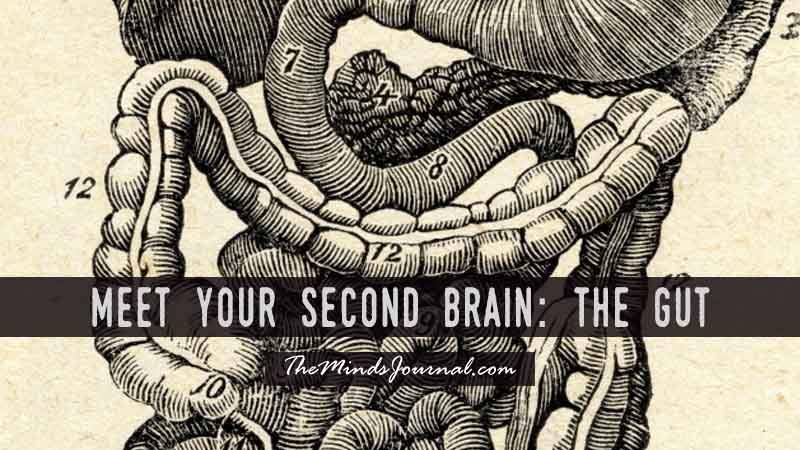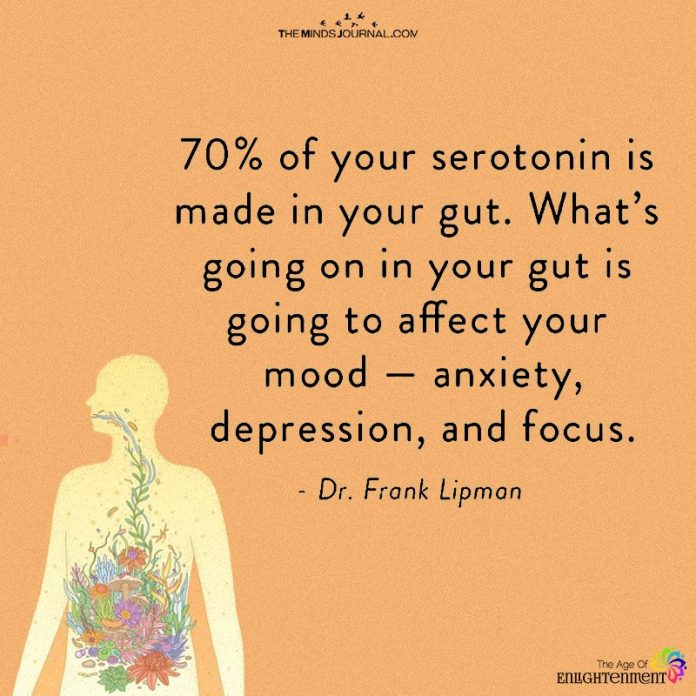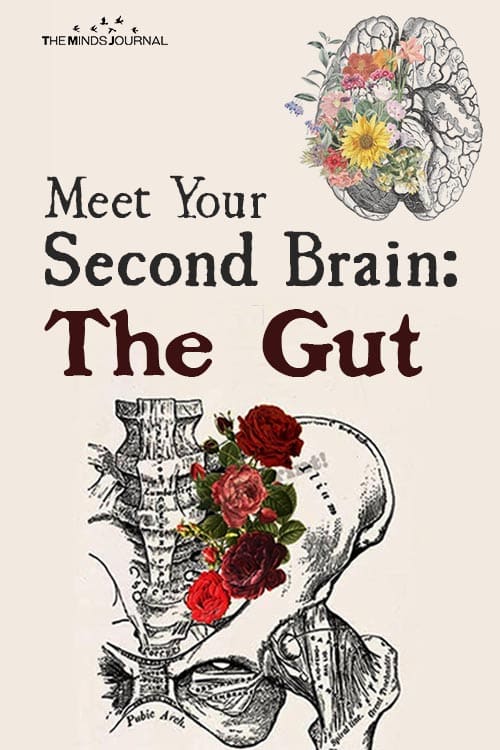Did you know you have a second brain? Our gut is connected directly to our brain and affects our behavior, decisions, and moods.
You have a second brain!
Yes! You do have a second brain and it’s your gut. Have you ever been told to trust your gut instinct? Did you ever have a gut feeling about something important? Do you feel something is wrong with your gut when you feel stressed? This is due to the gut-brain connection. There is a primal connection between our mind and our gut, also known as the enteric nervous system (ENS). The ENS consists of over 100 million nerve cells that line our gastrointestinal tract from esophagus to rectum.
Justin Sonnenburg Ph.D. and Erica Sonnenburg Ph.D., author of The Good Gut: Taking Control of Your Weight, Your Mood and Your Long-Term Health, explain “Our brain and gut are connected by an extensive network of neurons and a highway of chemicals and hormones that constantly provide feedback about how hungry we are, whether or not we’re experiencing stress, or if we’ve ingested a disease-causing microbe.” This superhighway of information is known as the gut-brain axis.
Read also: How To Heal Your Gut: Habits That Improve Your Gut Health

The gut is connected with the brain through innumerable neurons and acts as our second brain. The enteric nervous system is responsible for regulating the gastrointestinal system. “This vast web of connections monitors the entire digestive tract from the esophagus to the anus. The enteric nervous system is so extensive that it can operate as an independent entity without input from our central nervous system, although they are in regular communication,” added Justin and Erica.
Even though this second brain is not capable of creating a masterpiece or thinking about politics and religion, it plays a crucial role in monitoring the functions of our inner tube.

How the gut functions like a second brain
A healthy gut consists of trillions of bacteria collectively known as the microbiome. The gut microbiota, through the neural network of the ENS, significantly helps in maintaining our mental and physical health. Jennifer Wolkin licensed clinical health and neuropsychologist, and founder or BrainCurves, explains “The ENS is sometimes called the “second brain,” and it actually arises from the same tissues as our central nervous system (CNS) during fetal development. Therefore, it has many structural and chemical parallels to the brain.”
With the perfect arrangement of hormones, electrical impulses, and neurotransmitters that travel through nerve pathways, both our primary and secondary brains engage in two-way communication.
Read also: 7 Ways to Improve Your Gut Bacteria, Based on Science
The gut and health
Considering that our brain and the gut are intimately connected, our emotional and psychological health can have a strong impact on our second brain: the gut. And perhaps this is why stress and anxiety often lead to various stomach problems. According to Harvard Health Publishing, “Anger, anxiety, sadness, elation – all of these feelings (and others) can trigger symptoms in the gut. The brain has a direct effect on the stomach and intestines.”
It has been observed that our gut tends to send signals to the brain when in distress and the brain sends signals to the intestines when troubled. Hence, intestinal or stomach problems can often lead to feelings of stress, anxiety, or depression as the brain and GI system are closely linked. The article from Harvard Medical School adds “Given how closely the gut and brain interact, it becomes easier to understand why you might feel nauseated before giving a presentation or feel intestinal pain during times of stress.”

Our second brain is not only linked to our mental health, but it also affects our physical health as well. One 2011 study by Emeran A. Mayer has revealed that the complex, bi-directional communication system between our brain and gut helps in effective maintenance of gastrointestinal homeostasis & digestion. Moreover, the study also found that the gut-brain connection is also “likely to have multiple effects on effect, motivation and higher cognitive functions, including intuitive decision making. Moreover, disturbances of this system have been implicated in a wide range of disorders,” like obesity and eating disorders.
However, our gut can also help us manage our mental health issues and improve our physical health and wellbeing. Author and Neurologist Richard E. Cytowic, MD, MFA explain that research indicates individuals with healthy and diverse gut microbes are more likely to be mentally healthier and suffer less from stress, anxiety or depression. He writes “Many of us who grew up in too-clean environments, frequently took antibiotics, and ate junk food have a decidedly unhealthy microbiome. So changing one’s diet could well benefit far more than your waistline.”
Read also: Gut Health & Mental Health: Understanding The Gut-Brain Connection
Moreover, the enteric nervous system (ENS) can also help us boost our well-being. The gut can operate independently and along with our brain to help us sense environmental threats and manage our response, even without us realizing it. Michael Gershon at Columbia-Presbyterian Medical Center, New York explains “A lot of the information that the gut sends to the brain affects well-being and doesn’t even come to consciousness.”
The gut: Key to good health

As more research is being conducted to understand our second brain better and it’s complex connection with our primary brain in the skull, it has already led to better treatment options. Jay Pasricha, M.D., director of the Johns Hopkins Center for Neurogastroenterology, says “Our two brains ‘talk’ to each other, so therapies that help one may help the other. In a way, gastroenterologists (doctors who specialize in digestive conditions) are like counselors looking for ways to soothe the second brain.” He adds “Psychological interventions like CBT may also help to improve communications between the big brain and the brain in our gut.”
However, the most important facet of the connection between our mind and our gut is the realization that daily lifestyle choices directly contribute to our overall wellness. neuropsychologist Jennifer Wolkin concludes “This whole-body approach to healthcare and wellness continues to show its value in our longevity, well-being, and quality of life: that both physical and mental health go hand-in-hand.”
Read also: 3 Ways to Improve Your Brain Health










Leave a Reply